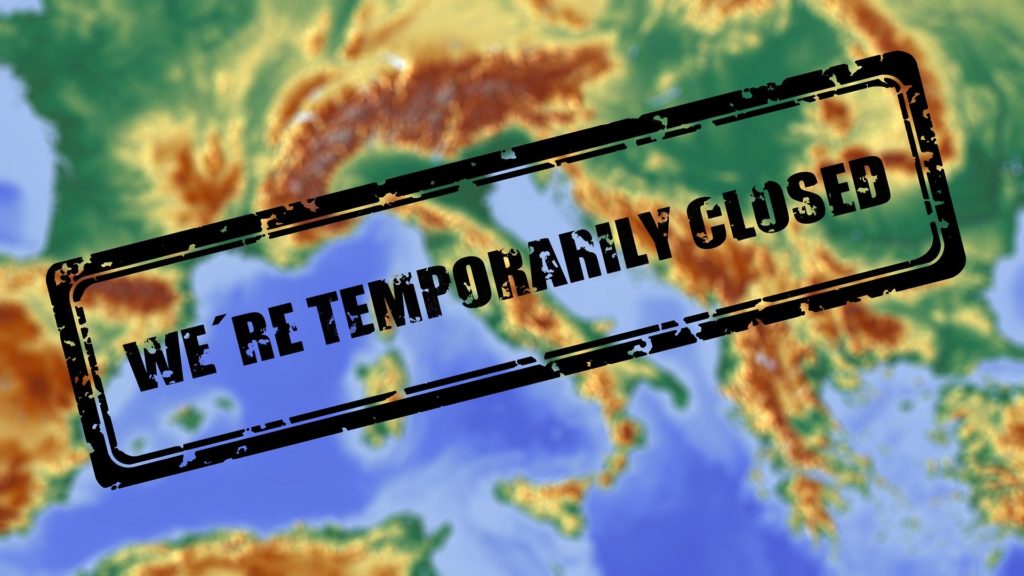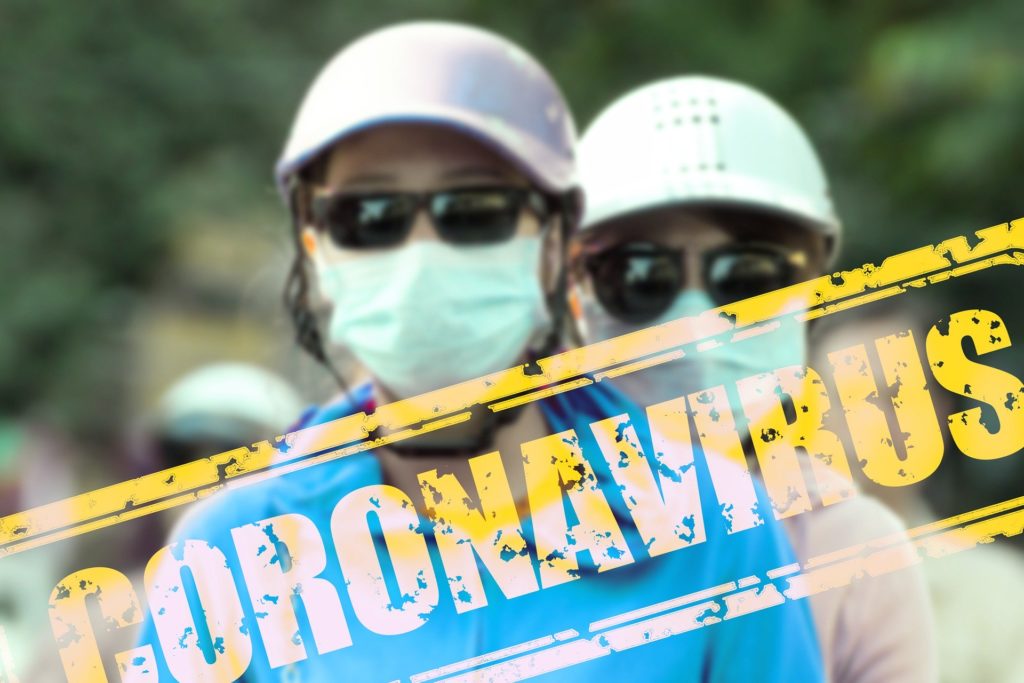
Novel Coronavirus, a virus that has been threatening the entire human race for a couple of months now. A few months ago, nobody even knew the name of this hazardous pandemic that has now claimed the lives of thousands of people across the world in a very short span of time. On the very last day of the previous year i.e. December 31, 2019, the China office of the World Health Organisation (WHO) came to know the first reports of a pneumonia case in Wuhan, China that caused by Coronavirus. Notably, Wuhan has a good 11 million people within the city. Today, when I am writing this post on March 18, 2020, at noon IST, this pandemic has already affected as many as 198,729 people and claimed the lives of 7,989 across the globe. Unfortunately, the numbers may increase in the near future as there is no solid cure have come to the table as of now. However, what might give us some relief is that the number of people who have recovered from this pandemic is 82,779. Other than China, the Coronavirus has been spread across 150 countries with Italy, Iran and Spain are the most affected countries of all. On March 11, the WHO had announced the official name of the disease: COVID-19. According to the International Committee on the Taxonomy of Viruses, Coronavirus is called Severe Acute Respiratory Syndrome Coronavirus 2, or Sars-CoV-2 for short. On March 11, 2020, the WHO officially declared COVID-19 as a pandemic.
How Did COVID-19 Pandemic Start?
It is reported that the COVID-19 disease was stem from Wuhan Seafood market – a marketplace where wild animals are traded ‘illegally’. In earlier stages, it was thought that the first people infected with COVID-19 must have a connection with the Wuhan Seafood market as Coronaviruses are generally transmitted from animals to humans. There have been some speculations that COVID-19 is caused by bats as the genetic sequences of coronavirus is 96 per cent identical to the coronavirus exists in bats. However, the analysis and study of the COVID-19 are still on.

How Do Coronaviruses Affect Us?
Coronaviruses affect the respiratory system of the humans and cause cold, cough, fever and some other severe infections. In some of the cases, the infection leads to severe respiratory tract diseases such as pneumonia and bronchitis. COVID-19 has a severe impact on older patients with pre-existing health conditions as their immune system is comparatively weak. In 2002 as well, the Coronavirus epidemic known as the Severe Acute Respiratory Syndrome (SARS) was initially detected in Southern China, affected as many as 8000 people in 26 countries and claimed the lives of 774 people.
COVID-19, Spreading Across the World
As of today, March 18, 2020, the number of cases in China alone is 80,894 and the death toll has reached 3,237. Though the new cases of COVID-19 found in China as of today are just 13, which is extremely low as China has seen more than 5000 cases in a single day in Mid-February. However, what is causing distress across the globe is that the new cases of COVID-19 in other parts of the world have not been decelerating. Italy, today, is the most affected country after China that has more than 31,506 cases of COVID-19 with a death toll of 2,503. What is heart-breaking is the fact the entire country has been compelled to the point that it had to be locked down. Other countries with the highest number of COVID-19 cases include Iran with 16,169 cases and 988 deaths, Spain with 11,826 cases and 533 deaths, Germany with 9,367 cases and 26 deaths, followed by South Korea, France, the USA and Switzerland where the number of cases of coronavirus is 8,413, 7,730, 6,522 and 2,742 respectively.
COVID-19 Testing
The World Health Organisation (WHO) has not announced any standardized testing procedure as the information about this new Novel Coronavirus is limited. In many cases that have found in China, South Korea, Italy and Iran, it has seen that the symptoms of the COVID-19 are recrudesced. Meaning, when you do a coronavirus testing on a patient, it shows no symptoms. However, if you perform the test on the same person the very next day, it starts to show the COVID-19 symptoms. Even after recovering from the COVID-19 completely, coronavirus is reoccurring in patients after a while. Consequently, there are a total of 5 procedures for collecting samples to test COVID-19 that are mentioned below:
Swab Test – A medical practitioner takes the sample of your saliva from your nose and/ or throat using a special swab.
Nasal Aspirate – A medical practitioner injects a saline solution in your nose and/ or throat and remove the sample with gentle suction.
Blood Test – A Blood test can also be used to take the sample of your blood via arms. However, since COVID-19 is a respiratory illness, the blood test is not that reliable in such a scenario.
Tracheal Aspirate – It is considered as the most difficult test of COVID-19 as the medical practitioner would pass a catheter through the mouth of the patient that goes into your lungs. This thin and lighted tube is called a bronchoscope, which collects the sample.
Sputum Test – The sputum test is very common in which the medical practitioner would take the sample of the mucus from the patient’s nose with a swab.
Coronavirus Diagnosis
After collecting tissues samples of the patients, the process of converting RNA (Ribonucleic Acid) from those samples into cDNA (Deoxyribonucleic Acid) will be initiated. In this process, the medical practitioners will majorly focus on this conversion and will study the changes occurred. It is genuinely a very difficult test and hence, it takes 24 to 48 hours in the completion of the test.
COVID-19 in India and Thailand
While the entire world has fallen a victim to COVID-19, how can we Indians be unhurt to this pandemic? In India as well, we do have 148 cases of COVID-19 and death toll at 3. The number of COVID-19 patients is, fortunately, quite less as compared to what we have seen in the above mentioned countries. However, this number has been increasing with each passing day. Similarly in Thailand, there are a total of 212 COVID-19 cases and the death toll is restricted to one.
COVID-19 Testing in India
Amidst the chaos of this pandemic, the question arises in our minds that with COVID-19 blocking off the entire world, is India efficient enough to deal with this deadly disease? Since the test for COVID-19 requires some advanced testing and is a complex test, the Government of India has not allowed private labs to perform this test. The COVID-19 tests are only available in the government-owned labs where we have advanced medical facilities.

Government Precautionary Measures Against the Spread of COVID-19
Suspension of all Visas amid COVID-19
The Bureau of Immigration, Ministry of Home Affairs has issued Travel and Visa restrictions amid COVID-19 from March 13, 2020, to April 15, 2020. Under these restrictions, all the existing visas that had been issued to nationals from any country are suspended. The people with Overseas Citizenship of India (OCI) card who avail the visa-free travel facility in India are also included in this list. The visas of any foreign citizens who are already living in India remain valid. In a nutshell, the Government of Indian has suspended all the tourist visas.
There are some exceptions in the restrictions, basis which the visas issued to the following foreigners class remain unaffected:
- Diplomats who are working in embassies in India
- Any foreign government officials who are coming to India any government official work
- Any members of UN/ International Organisations
- Any person who is coming to India for employment
- Any person with project visa
Other than that, any foreign nationals who are willing to travel to India for ‘compelling reasons’ such as the medical emergency of a family member can get in touch with the nearest Indian Mission to apply for a fresh visa. However, the Indian Embassy has the right to accept or reject visas based on the reasons for travel.
Quarantine Rules by Indian Government
If any citizen, including Indian national, is arriving from or visited China, Italy, Iran, the Republic of Korea, Spain, Germany or France on or after February 15, 2020, s/he can be quarantined for a minimum period of 14 days.
Thailand has also cancelled Visa on Arrival for India, South Korea, Hong Kong, Italy and 14 other countries amid COVID-19.
The Central Government has issued a notice to close some major landmarks including Rashtrapati Bhawan. The Delhi Government has already issued a circular to close schools, colleges and movie theatres till March 31, 2020, amidst Coronavirus spread. The Mayor of Agra has urged the Central Government to close Taj Mahal till March end as there is no screening facility for thousands of Taj Mahal visitors on a daily basis.
Indian Government Proposed SAARC Fund to Deal with COVID-19
The Indian Government recently has proposed a voluntary contribution of US $10 million for the South Asian Association for Regional Cooperation (SAARC) Fund to cope with Coronavirus. This fund can be used by any of the members of the SAARC countries in case of requiring any medical equipment, medical services or any other requirements to fight COVID-19. There are 8 members in the SAARC namely Afghanistan, Bangladesh, Bhutan, India, Nepal, Pakistan, Sri Lanka and the Maldives.
The Indian Government has also assembled a Rapid Response Team of Doctors and Specialists who will be on standby and can be deployed to any of the SAARC countries.
The Indian Government has also offered to arrange online training capsules through sharing software by which all the doctors and specialists can share their experiments, experiences, findings and knowledge of the COVID-19.
The Global Impact of COVID-19
The World Travel and Tourism Council (WTTC) has stated that as many as 50 million jobs could be lost in the midst of COVID-19 pandemic. Further, it said that the travel sector may shrink up to 25% in the year 2020 alone.
The WHO chief Tedros Adhanom Ghebreyesus has alerted all the countries that the chances of containing COVID-19 are decreasing with each passing day, especially after the recent outbreaks of Iran and Italy, which have no direct link with China. This is one huge concern for the healthcare authorities to stop the coronavirus from spreading more.



